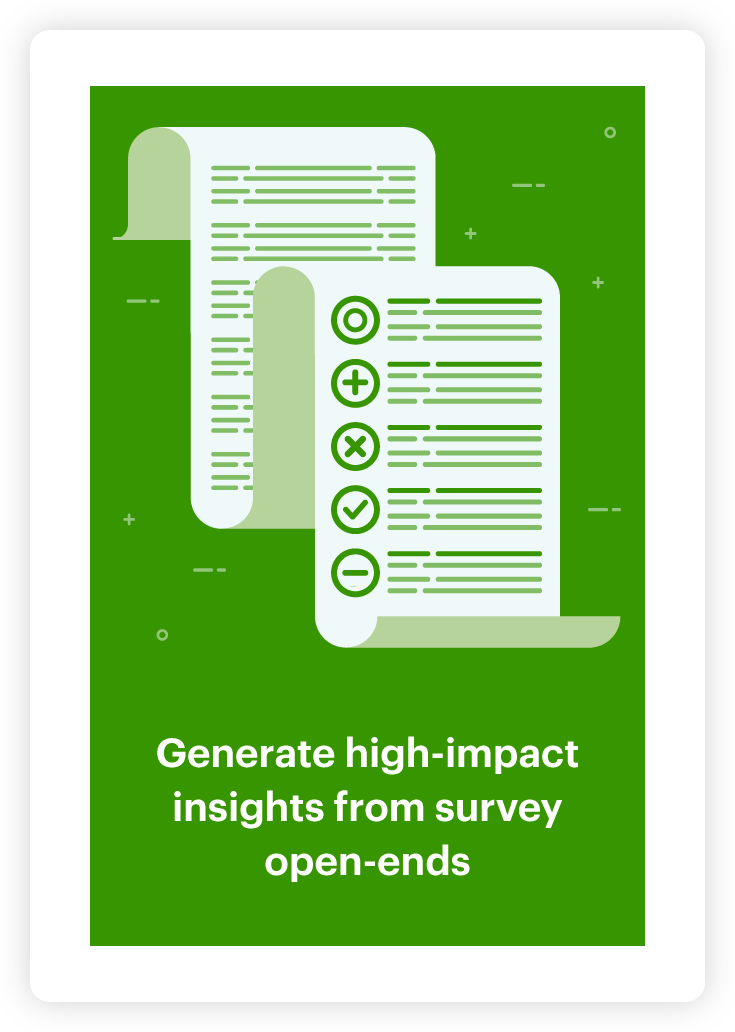Battling bedbugs and poor cleanliness using hotel survey analysis


Hotel surveys are the easiest way to understand guests’ experiences. Whether in the form of a post-stay guest experience survey or other questionnaire measuring customer contentment, gathering feedback is vital to continuously improve service and facilities.
Less performative than online reviews, hotel surveys offer a more balanced assessment of what guests like and dislike. It also provides an outlet for guests who were reluctant to approach staff directly.
However, the drawback to qualitative feedback has traditionally been the time it takes to analyze, and then quantify in a form that effects change. Using the right hotel guest experience software to quickly pinpoint what delights or upsets vacationers ensures that operators can double down on what’s working and improve what isn’t.
Acting on qualitative feedback in real time is what led one tour operator to Relative Insight’s text analysis platform. The global travel company uses the tool to analyze guest experience surveys across its flights, accommodation and activities. This includes its hotels in popular destinations — such as Cancun.
With a plethora of places to stay, any issues arising at its hotel in the Mexican tourism hotspot need to be addressed rapidly to prevent travelers from flocking to other hotels and denting the company’s revenue.
Relative Insight’s hotel guest experience analysis software came to the fore when guest ratings began to fall in 2023. By quickly identifying and correcting problems around cleanliness, hygiene and even bedbugs, the resort prevented a serious reputational issue from escalating — and denting its bottom line.
Cleaning staff shortage impacts guest experience
To grade its hotels, the operator’s guest experience surveys uses net promoter score (NPS). The company’s customer experience team analyzes and evaluates scores and feedback on a weekly basis. Its Cancun accommodation typically scores highly, with most guests classified as promoters.
However, during one week in 2023, the operator’s customer team identified a fall in scores from guests — with more respondents falling into the detractor category. To pinpoint what was driving these falls, the team used Relative Insight’s platform to compare that week’s hotel survey responses to feedback from the previous week — where scores were in line with expectations.
By using Relative Insight’s hotel guest experience software to examine what had changed, the team quickly identified a fall in cleanliness and hygiene standards. Guests were 22.2x more likely to use words related to ‘dirtiness’ in their feedback.
They described both the rooms and pools as ‘dirty’ and ‘unclean’, noting that there was ‘floating debris’ within the latter. Respondents also talked about ‘stains’ on bed linen infinitely more, meaning this word didn’t appear in feedback from the week prior.
“The hotel’s cleanliness fell well below expectations. There were stained linens and dirty surfaces in our room, the pool water was cloudy and there was litter strewn about. This really detracted from an otherwise a great vacation.“
The customer team shared this feedback with the hotel’s management, who attributed blame to staff shortages. They assured the operator that these issues would be rectified.
Hotel survey raises bedbug issue
Despite assurances that issues around cleanliness and hygiene would be addressed, the hotel’s guest experience survey scores continued to fall.
There were a surge in the number of detractors and the hotel’s NPS plummeted. Digging into the feedback provided an alarming realization for the operator’s customer team.
Guest experience survey respondents were 11.5x more likely to reference ‘animals’ — in this case either ‘mosquitos’ or ‘bugs’. This refered to ‘bites’ — a word guests used 24.5x more.
However, customers also used the word ‘clusters’ infinitely more when talking about bites. This indicated to the customer team that these were bedbug bites, rather than mosquitos. Evidently, the hotel had a bedbug problem.
Rather than simply report this to the accommodation’s management, this time the team escalated the feedback to its Central American territorial leaders.
Faced with huge reputational and financial damage, territorial managers immediately forced the hotel to bring in a specialist cleaning company to ensure linens and other parts of rooms vulnerable to bedbugs were thoroughly cleaned.
Using a combination of Relative Insight’s hotel guest experience software’s segmentation capabilities and unique respondent IDs, the operator’s customer team identified the rooms where guests had reported clusters of bites. Hotel management brought in pest control specialists to eliminate the problem.
Rectifying issues sees return of promoters
Quickly addressing the bedbug infestation and escalating cleanliness issues ensured the customer team quashed problems before they impacted the hotel long term. The team used Relative Insight’s software to examine whether their actions were effective in restoring guest experience to usual levels.
Over the next two weeks, the hotel’s NPS returned to baseline levels. When analyzing feedback, guests remarked upon the accommodation’s commitment to cleanliness and hygiene.
They talked about rooms being ‘clean’ 14.7x more and used adjectives related to cleanliness 20.5x more, including ‘spotless’, ‘immaculate’ and ‘impeccable’.
“One aspect that stood out was the impeccable cleanliness throughout the hotel. From the lobby to our room, everything was spotless and well-maintained.“
Guests also noted the increased number of cleaning staff in their hotel survey responses. They referenced this 3.4x more, while also being infinitely more likely to say they went about their work ‘meticulously’ and ‘diligently’.
“We were impressed by the visible presence of cleaning staff diligently working to maintain the cleanliness of the premises. Their constant attention to detail was reassuring.“
Using hotel survey analysis to halt escalating issues
Despite widespread hotel survey responses outlining issues with cleanliness, hygiene and bedbugs, onsite hotel management only received one face-to-face complaint about these problems.
This highlights the need for the right hotel guest experience software. It not only allows you to track the reasons behind rising and falling NPS, but it also acts as a warning system for issues that guests choose not to raise during their stay.
In this case study, both the hotel’s operator and onsite management wouldn’t have identified issues around cleanliness, hygiene and bedbugs without analyzing guest experience surveys.
By pinpointing the problem, the hotel managed to reallocate incoming guests to unaffected rooms while they sanitized areas compromised by bedbugs, minimizing disruption and cost.
The company’s customer team successfully negated an issue that would’ve caused huge reputational and financial damage if allowed to linger. Its analysts estimated that the long-term cost could have risen as high as $165,000.
Want to find out how you can use Relative Insight’s text analysis software to understand why guest NPS ratings are moving up or down? Try the platform for free.
